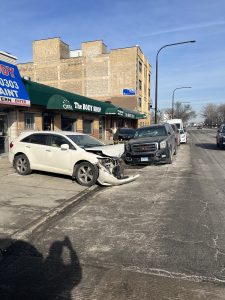You buy a new car and you finance it and make your payments every month. You drive a lot and put 60,000 mile on your car in one year. Then one year later another driver runs a red light and slams into your car. You, thankfully, are not injured, but your car is a total loss. Good thing you have full coverage. You insurance company evaluates your car and determines the value of your car is $15,000 and will cut you a check for that amount. Unfortunately, you still owe $20,000.00 on your car. You complain about the settlement offer but the insurance company points out that they are only liable to pay the value of your car, not what you paid for it and directs you to Kelly Blue book to verify what your car is worth. You may ask how can I protect myself from incurring a loss in this situation. The personal injury Lawyers of Zneimer & Zneimer, P.C, have encountered this scenario quite a few times and the first thing we ask our clients is whether there was a GAP insurance policy in effect at the time of the accident.
What Is GAP Insurance?
GAP insurance“Guaranteed Asset Protection” is a type of auto insurance coverage that protects car owners from financial loss if their vehicle is totaled or stolen and the payout from their standard auto insurance doesn’t cover the full amount they owe on the car loan or lease.
How Does it Work?
– When you purchase or lease a car, its value begins to depreciate the moment you drive it off the lot.
– If your car is totaled in an accident or stolen and deemed irreparable, your regular auto insurance typically pays out the current market value of the car—not what you paid for it or what you still owe.
– GAP insurance covers the difference between the car’s actual cash value (ACV) and the remaining balance on your loan or lease.
Why Is GAP Insurance Important?
- Cars Depreciate Quickly
New cars lose value rapidly, often by as much as 20% in the first year especially if you happen to commute long distances and have put a lot of miles on it. If you financed most or all of the purchase, there’s a good chance you owe more than the car’s worth for at least the first few years. GAP insurance ensures you’re not stuck paying out of pocket for a car you no longer have.
- Peace of Mind
A major accident or a car theft is unexpected. Having GAP insurance alleviates the need to worry about whether you are going to owe money and be out of a car if something does happen to your car.
Mandatory for Leases
Many leasing companies require GAP insurance because the risk of owing more than the car’s value is even higher with a lease. If you don’t have it, you may be in violation of your lease terms.
The Consequences of Not Having GAP Insurance
If you don’t have GAP insurance and your car is totaled or stolen, you could face major debts and be left without transportation:
- Out-of-Pocket Costs
Without GAP insurance, you’re responsible for paying the difference between what your insurer covers and what you still owe on your loan or lease. This might mean owing thousands of dollars for a car you can no longer use.
- Risk of Financial Loss
Being forced to pay off a car loan while also needing to purchase a replacement vehicle can be more than you can handle, especially if you’re unprepared for the expense.
- Credit Damage
If you can’t pay off the remaining balance on your loan, it could hurt your credit score, making it more difficult to secure financing in the future.
When Should You Consider GAP Insurance?
GAP insurance is particularly important if:
– You made a small down payment or financed most of the car’s purchase price.
– You drive a vehicle that depreciates quickly and/or have put a large number of miles on the car.
– You have a long-term loan (e.g., 60 months or longer).
– You lease your vehicle, as many leasing contracts require it.
How to Get GAP Insurance
GAP insurance can usually be purchased through:
Your auto insurer: Many companies offer it as an add-on to your standard policy.
– The dealership: GAP insurance is often offered when you buy or lease a vehicle, but this option may be more expensive.
– Third-party providers: You can shop around for standalone GAP coverage from specialized insurers.
Protecting Yourself After an Accident
If you’re involved in an accident that totals your vehicle, you’ll already be dealing with stress and potentially physical injury. The last thing you want is the added burden of a large financial loss. This is why having GAP insurance in place is so critical—it allows you to focus on recovery rather than worrying about money and typically does not cost that much.
The personal Injury Lawyers of Zneimer & Zneimer P.C know first hand how disruptive a loss of a car can be to a persons livelihood. GAP insurance can help in limiting this disruption. It is wise to pay extra for GAP in insurance just in case. Additionally, you may have GAP insurance and not be aware you have it. Contact us today for a free consultation to discuss your case and your rights.
 Chicago Accident Lawyer Blog
Chicago Accident Lawyer Blog


